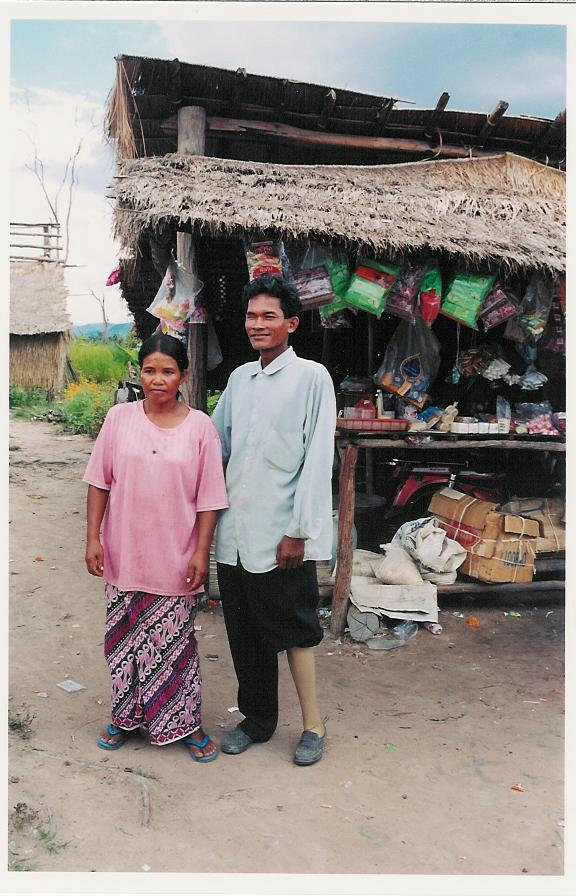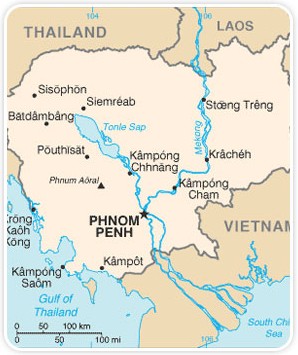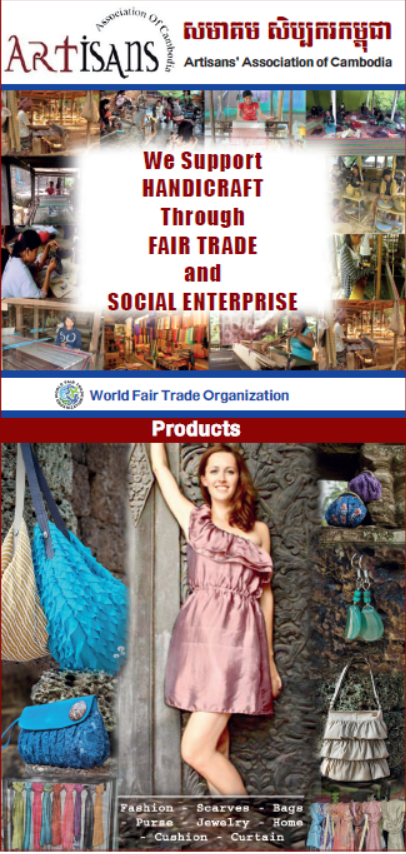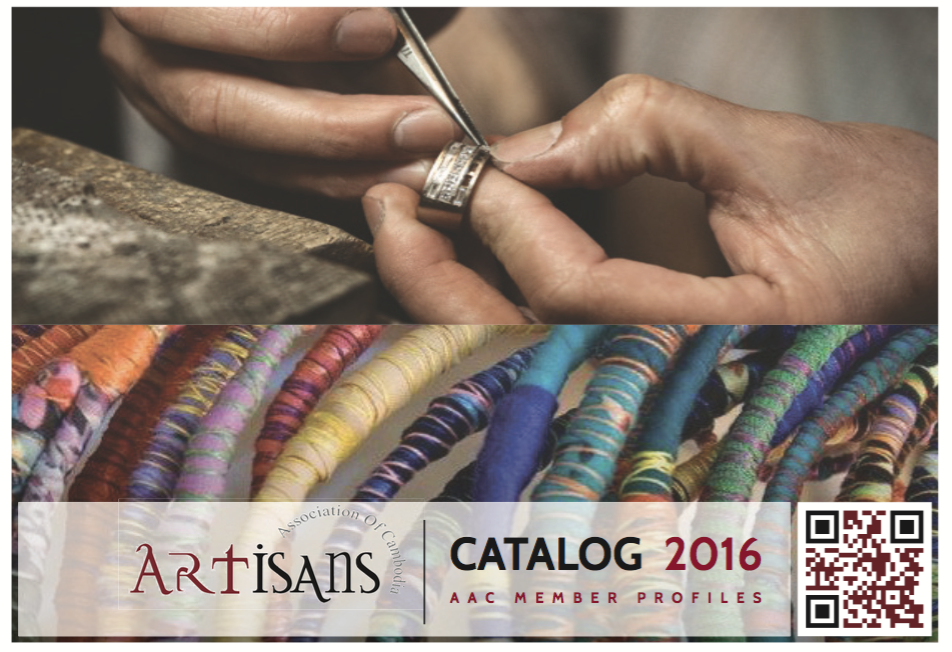The Artisans’ Association of Cambodia (AAC) was founded in 2001 by WRF as part of a United Nations Development Programme (UNDP) funded initiative to develop innovative approaches to the socio-economic integration of landmine survivors. Cambodia, one of the poorest countries in Southeast Asia where over 50% of its population earns less than $2 per day, continues to grapple with landmines, with as many as four to six million landmines and unexploded ordnances. Due largely to this, there are some 40,000 amputees in Cambodia.
 Bearing in mind the barriers to economic independence for vulnerable communities in Cambodia, the AAC has expanded its mission to help not only landmine survivors but also other persons with disabilities and women, especially those who are disabled, victims of trafficking, HIV positive, or single heads of families. The AAC supports over 40 social enterprises in Cambodia who employee over 2,540 Cambodian artisans, 76% of whom are women.
Bearing in mind the barriers to economic independence for vulnerable communities in Cambodia, the AAC has expanded its mission to help not only landmine survivors but also other persons with disabilities and women, especially those who are disabled, victims of trafficking, HIV positive, or single heads of families. The AAC supports over 40 social enterprises in Cambodia who employee over 2,540 Cambodian artisans, 76% of whom are women.
The AAC supports small Cambodian social enterprises who provide opportunities for marginalized people to produce and market artisan products both domestically and internationally. Assistance from the AAC includes training and technical assistance in the areas of production, design, management, marketing and other aspects important to the optimum functioning of groups involved in artisan work. The AAC also helps to identify and recruit buyers, educate members on the importance of complying with fair labor practices and works closely with the Ministries of Commerce and Tourism to promote Cambodian artisan products to tourists and international buyers.
This assistance enables member organizations to advance opportunities for the nation’s most vulnerable people to achieve economic independence by providing viable markets for quality products.
Achievements
- AAC has grown from an organization with only 4 members to 43 member organizations who employ persons with disabilities, women, single parents, migrants, and vulnerable youth.
- Nearly 2,550 artisans and support staff are beneficiaries of the AACs’ assistance. Over 75% of workers helped by the AAC are women.
- Through strengthening its member organizations, increasing quality of their products and sales, and advocating on their behalf, AAC enables higher wages and better working conditions for the artisans, and ultimately fosters social and economic independence for people who otherwise would not be able to achieve it.
- International sales have grown from $25,000 per year to over $3.1 million in 2015. Consequently, the increase in sales has led to higher incomes and greater economic independence for the AAC artisans.
- AAC products are currently sold in some 18 countries outside of Cambodia. These include: USA, UK, Netherlands, France, Malaysia, Hong Kong, Singapore, Italy, Sweden, Spain, Australia, Japan, New Zealand, Germany, Canada, South Korea, Finland and Scotland.
AAC is a fair trade association and is a member of World Fair Trade Organization (WFTO) Asia, HomeNet South East Asia, and Cambodia National Silk Board.
To learn more, visit www.aac.org.kh.
 Past WRF projects in Cambodia have included the PACE (Poverty Alleviation through Community Empowerment) where some 177 persons who were ex-combatants from the Cambodian Civil Wars and their families formed a community in Veal Thom, a rural village in Cambodia. WRF provided employment training by recruiting mentors to allow them to develop economic activities to help them achieve economic independence. This project was replicated in part in nearby communities as well.
Past WRF projects in Cambodia have included the PACE (Poverty Alleviation through Community Empowerment) where some 177 persons who were ex-combatants from the Cambodian Civil Wars and their families formed a community in Veal Thom, a rural village in Cambodia. WRF provided employment training by recruiting mentors to allow them to develop economic activities to help them achieve economic independence. This project was replicated in part in nearby communities as well.
WRF also worked to develop a Business Advisory Council to form an interface between business and the community of persons with disabilities in Cambodia. Through this interface, hundreds of job placements were developed for persons with disabilities. This project had a component where, in collaboration with the International Labour Organization (ILO) and the Government of Cambodia mentorships were developed in various areas of Cambodia to provide more jobs for persons with disabilities.



